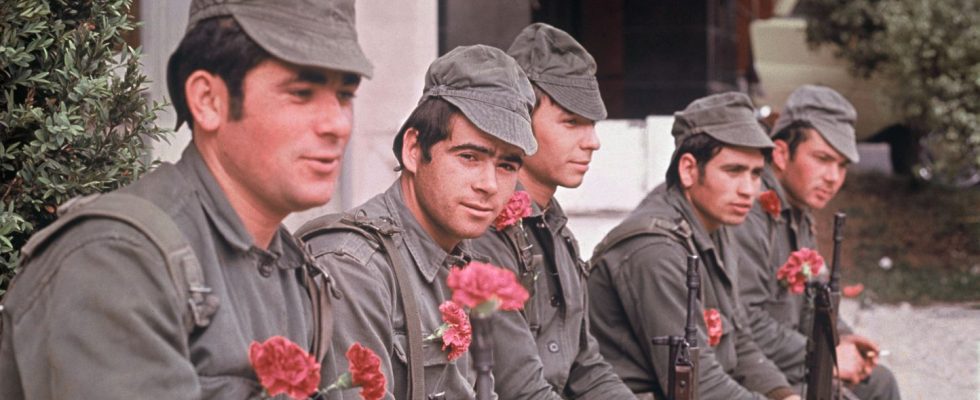The song finished last in Eurovision but was the first to start a revolution. We are in Portugal, April 24, 1974, it is 10:55 p.m. sharp and the first notes of E depois do adeus (“And after the goodbye”) resounds on the antenna of Emissores Associados de Lisboa.
A few weeks earlier, on April 6, with this song, Paulo de Carvalho represented Portugal on the Eurovision stage, which was held in Brighton (United Kingdom). He only had three points. Red lantern of this edition, this ballad was no match for the Waterloo by ABBA, memorable winner of the competition, but that didn’t stop her from making history.
In this spring of 1974, a wind of revolt floats in the Portuguese air. The dictatorship which has stifled the country since 1933, first under the control of Salazar then of Marcelo Caetano, is living its last days. The people thirst for freedom, the colonial wars in which Portugal is bogged down cause an ever more massive rejection. The soldiers of the MFA (Armed Forces Movement) are preparing a coup d’état.
Do not attract the attention of censors
To kick it off without arousing suspicion, they choose two songs as a signal. First of all E depois do adeus, the blue flower lament of a broken heart, far from being subversive. This is intentional: above all, we must not attract the attention of the censors responsible for validating the programming. The radio on which it is broadcast does not broadcast more than 150 km from Lisbon. This especially allows the officers present in the Portuguese capital to be ready.
To indicate to the military that it is time to take action, it is Grândola, Vila Morena (“Grândola, brown town”) which was retained. Signed José Afonso, activist artist and declared opponent of the Salazarist regime, it is a hymn to friendship and fraternity.
The song was broadcast at twenty minutes past midnight on April 25, 1974, on Radio Renascença, which broadcast throughout the country. Now is not the time to turn back. The troops took their places and what would soon be called the Carnation Revolution, in reference to the flowers slipped into the barrels of the MFA’s rifles, marked the beginning of Portugal’s shift towards democracy.
The singer decorated with the Order of Liberty
The history books have mainly remembered Grandola, Vila Morenaperhaps because this piece was the real kick-off of the revolution and because it has since joined the repertoire of protest songs alongside Bella Ciao Or of The Estaca. But we should not minimize the role played by E depois do adeusa popular success of the time, which served as the first alert.
Paulo de Carvalho, who will celebrate his 77th birthday in May, continued his career, devoting himself to fado. In 2009 he was honored with the Order of Liberty. This distinction awarded to people who have contributed to the defense of democracy and human rights was created in 1976. It was originally used to distinguish those who were involved in the Carnation Revolution.

